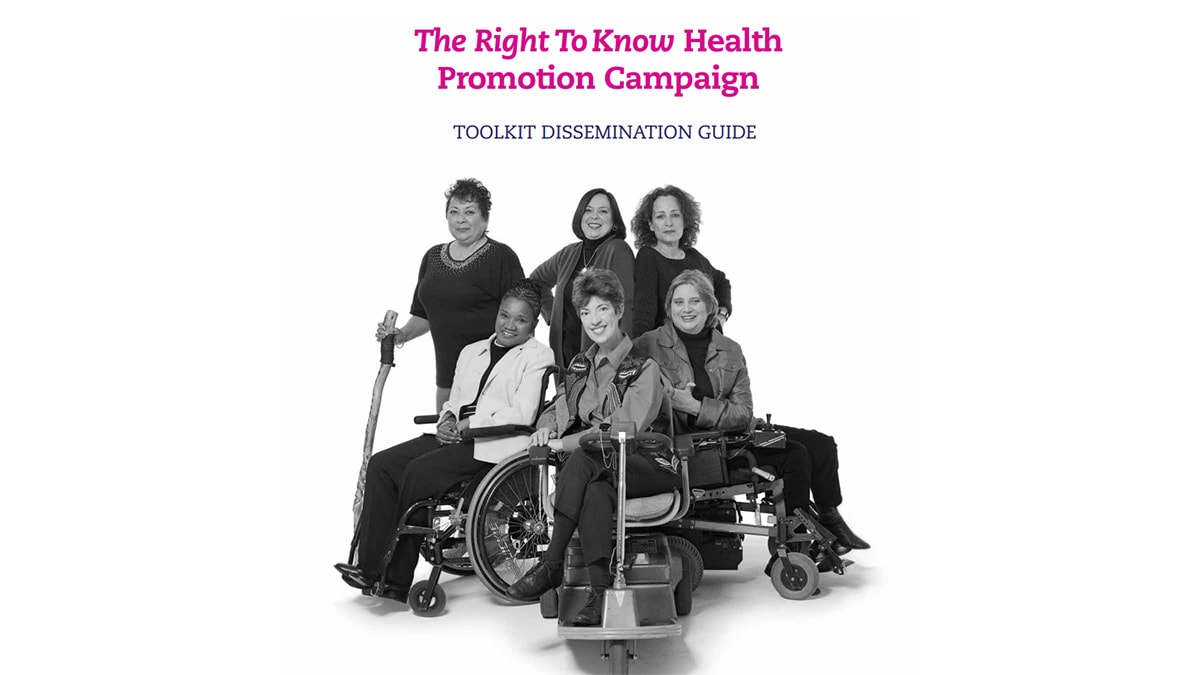At a glance
Women with disabilities are less likely to have been screened for breast cancer within the recommended guidelines. The "Right to Know" campaign materials increase awareness of the importance of breast cancer screening among women with disabilities.

Why it's needed
Breast cancer is a major public health concern for all women, including women with disabilities. However, women with disablities are significantly less likely to have been screened within the recommended guidelines.1 The public health community has used health communication messages and campaigns to increase breast cancer awareness and encourage women to take steps to help prevent breast cancer, yet few communication messages exist for women with disabilities.
Several studies have explored the barriers to breast cancer screening for women who have physical disabilities.234 The barriers include:
- Thinking, "It won't happen to me"
- Focusing on other health issues
- Difficulty with positioning while getting a mammogram
- Not knowing where to go for accessible screening
- Inaccessible facilities and equipment
- Healthcare provider's knowledge and attitudes
Women with disabilities also identified the lack of health promotion messages and materials that reflect their needs as a problem and requested that CDC address this issue.
As a result of this study, CDC developed health promotion materials (e.g., print advertisements, posters, fliers, tip sheets, audio files and transcripts) to increase awareness of breast cancer among women with physical disabilities and encourage these women to get screened. Materials share the tagline "Breast Cancer Screening. The Right To Know," and feature four women with physical disabilities who have survived breast cancer.
- Courtney-Long E, Armour B, Frammartino B, Miller J. Factors associated with self-reported mammography use for women with and women without a disability. Journal of Women's Health. 2011; 20:1279-1286.
- Magasi, Susan, et al. ScreenABLE: Breast Cancer Screening among Women with Disabilities from Community Identified Challenges to Community-Based Programs. Progress in Community Health Partnerships: Research, Education, and Action, vol. 13 no. 5, 2019; p. 61-69. Project MUSE.
- Todd A, Stuifbergen A. Breast cancer screening barriers and disability. Rehabil Nurs. 2012 Mar-Apr;37(2):74-9. doi: 10.1002/RNJ.00013. Erratum in: Rehabil Nurs. 2012 Sep-Oct;37(5):266. PMID: 22434617; PMCID: PMC4521895.
- Thierry, JM (2004). Barriers to breast cancer screening among women aged 40 years and older who have physical disabilities. (Doctoral dissertation) Retrieved from https://getd.libs.uga.edu/pdfs/thierry_joann_m_200412_phd.pdf
